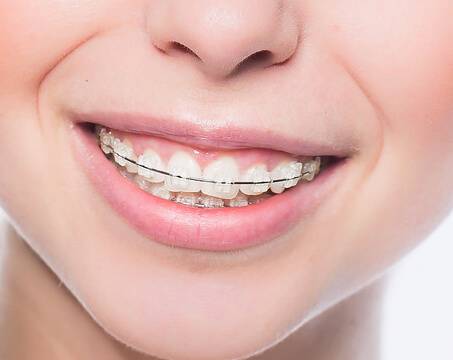DOG Orthodontic FAQs
What is an orthodontist?
An orthodontist is a dental specialist who has received two to three years of additional training and experience after becoming a general dentist. Your orthodontist is uniquely trained to straighten teeth, correct bites and misaligned jaws, and improve the esthetics of your smile. Fun Fact: Not ALL dentists are Orthodontists (only about 6% of Dentists). But, ALL Orthodontists are dentists.
Are all orthodontists Board Certified?
No. The AAO reports that about 1/3 or 33% of orthodontists are Board Certified by the American Board of Orthodontics. Dr. Jake Dorfman, your Bucks County and Philadelphia orthodontist, is proud to have achieved Board Certification in 2018, which exemplifies his commitment to the highest quality orthodontic care and lifelong learning.
What is the best age for my child to first visit the orthodontist?
Age 7 is the ideal age for your child's first visit to the orthodontist. The American Association of Orthodontists recommends that children first visit an orthodontist around the age of seven. That is when their adult molars and front teeth begin to erupt and establish their bite. Most kids continue to be monitored until all or most of their adult teeth come in, but some benefit from Interceptive or Early orthodontic treatment while they still have baby teeth. Learn more about Early Orthodontic treatment at Dorfman Orthodontic Group here.
Can adults and seniors get Orthodontic treatment to improve their smile?
Yes! It is becoming more and more common for adults and seniors to start orthodontic treatment to straigten their teeth and improve their smile. At Dorfman Orthodontic Group, most adults and seniors choose Invisalign or clear aligners as their treatment of choice. Invisalign or Clear Aligners are a great option for adults and seniors who want orthodontic treatment because of their clear appearance, ability to remove them to eat and clean their teeth and gums, greater comfort, and typically shorter treatment times than braces. Learn more about Invisalign at Dorfman Orthodontic here.
How can I take care of my teeth if I'm wearing braces or a retainer?
- ALWAYS remember to brush your teeth after every meal and floss at least once a day.
- Make sure to use toothpaste that contains fluoride, and ask your orthodontist or family dentist if you need a fluoride rinse. This will help prevent cavities!
- If you take out your retainer to eat, make sure you brush your teeth, floss, and remember to keep it safe in its container so that it does not get lost or broken.
- Keep your retainer clean, too, by brushing it gently with a toothbrush and toothpaste. You may also soak it in denture cleaner as instructed by your orthodontist. Do not put your retainer in boiling water or in the dishwasher.
- During your treatment, try to avoid foods with a lot of sugar, which increases the amount of bacteria that grows in your mouth, causing more plaque and possibly cavities.
- Avoid sticky and chewy foods (caramel, chewing gum, gummy bears), hard foods (hard candy, nuts, ice cubes), or any foods that could possibly get stuck in your braces (corn on the cob, soft bagels, ribs, taffy, etc.).
- Be sure to schedule your routine checkups with your family dentist. It is recommended that you continue to visit the dentist every six months.
What are braces?
Braces are used by your orthodontist to help you improve the look and feel of your smile. There are several different types of braces to choose from, including:
- Clear braces
- Ceramic braces
- Lingual braces
- Self-ligating braces
- Invisible braces
- Traditional metal braces
If I get braces, how long do I have to wear them?
The amount of time spent in braces will vary depending on the individual patient, because every smile responds differently to treatment. Treatment times can take anywhere between six and 30 months, but most standard treatments take about 22 months.
Do braces hurt?
Braces do not often hurt though you may feel a small amount of discomfort for a couple days as your teeth, gums, cheeks, and mouth get used to your new braces.
Do I need to brush my teeth more often if I have braces?
With braces, you should brush your teeth at least three times a day to keep your teeth, gums, and mouth healthy and clean. Brushing regularly will help remove any food that may be caught between the braces. You should also floss daily to get in between your braces where your brush isn't able to reach. Your orthodontist can show you how to properly brush and floss once your braces are placed.
If I have braces, do I still need dental checkups every six months?
Yes! In fact, it's even more important that patients receiving orthodontic treatment visit their dentist regularly. With braces, food may be caught in places that your toothbrush can't reach. This causes bacteria to build up that can lead to cavities, gingivitis, and gum disease. Your dentist will work closely with your orthodontist to make sure that your teeth stay clean and healthy while wearing braces.
Will my braces interfere with my school activities like sports, playing an instrument, or singing?
Playing an instrument or a contact sport may require some adjustment when you first get your braces, but wearing braces will not stop you from participating in any of your school activities. If you play a contact sport, it is recommended that you wear a mouthguard to protect your braces or appliance.
How do I schedule my next appointment?
Simply call our practice! Our front desk staff will be happy to help schedule your next appointment at your convenience. If you are a new patient or have been referred to our practice, please let us know and we will provide you with all of the information you need.



